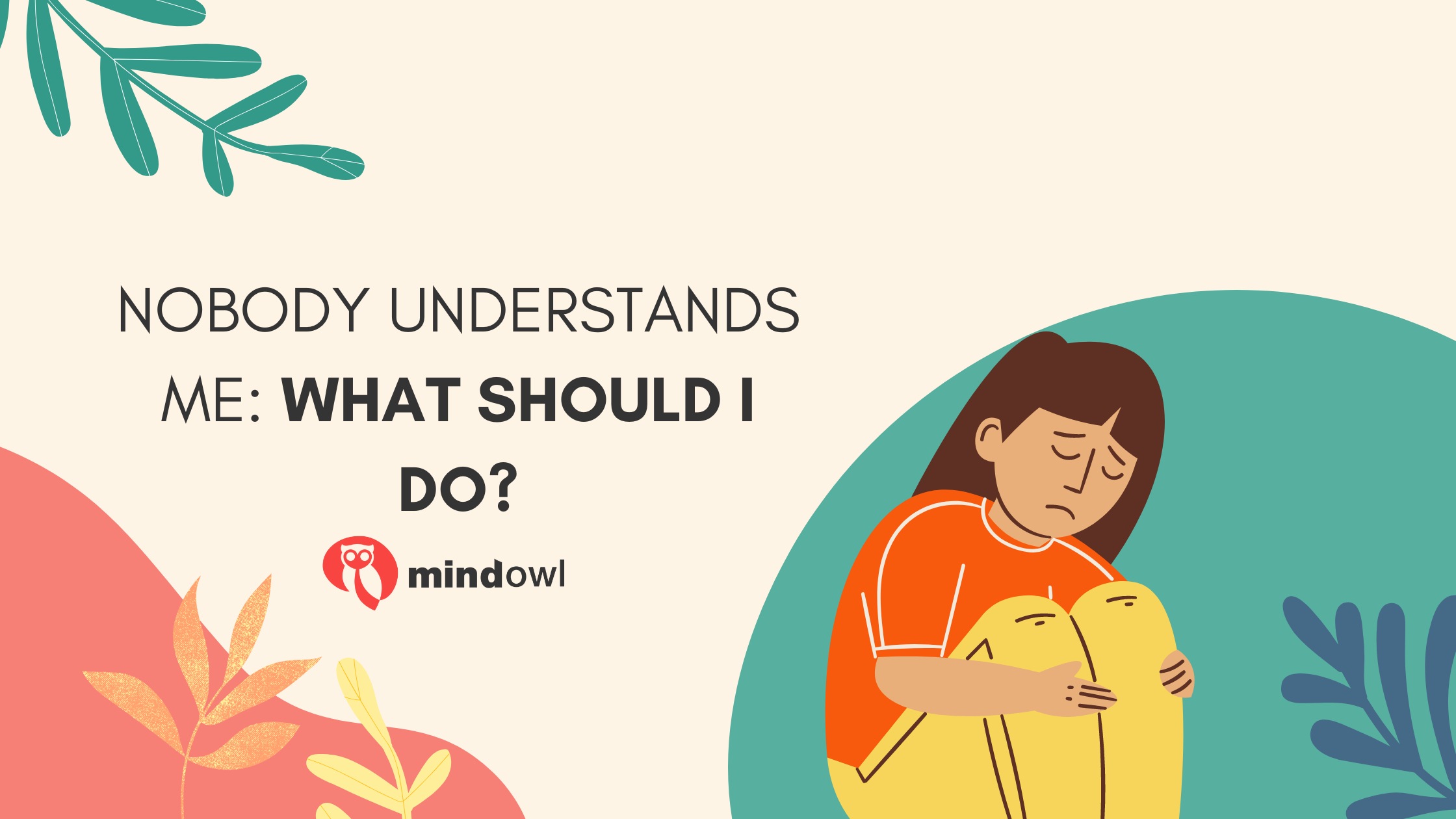“Nobody understands me” Have you ever thought this to yourself? If you feel like no one understands you, then you’re not alone. It’s actually quite common for humans to be misunderstood.
After all, other people don’t have access to your thoughts, so they’re never going the see the world exactly as you see it. Also, humans communicate via facial expressions, and facial expressions can be extremely misleading.
So, in the words of Heidi Halvorson, “you are harder to understand than you think”. But you can help others to understand you better! Developing your self-awareness and emotional intelligence are good places to start.
Why we need to feel understood
The desire to feel understood is not unique; it is a normal part of the human experience. In fact, according to ‘self-verification theory’ we seek out social information that validates our self-image. Why do we want to validate our self-image? Well, there are at least 3 reasons why we do this…
- To help us feel good about ourselves
If you have a positive self-image, you’ll appreciate it when others recognise those positive qualities in you. So, let’s say you see yourself as someone who is very quick-witted. When somebody else laughs at your jokes, this will affirm your self-image and help you see yourself in more positive terms.
- To predict future interactions with other people
Let’s say you identify as a liberal, but someone else sees you as a conservative. You’d prefer the other person to see you as a liberal, because you’d find it easier to predict how the other person would react to the things you say and do. After all, if the other person has misinterpreted your political beliefs, you’d worry that they might misunderstand a lot of what you say and do. Generally speaking, humans like to be able to accurately predict how others will respond to them.
- To feel in control of our self-image
If another person sees you exactly as you see yourself, this will help you feel in-control because it’ll remind you that you have a firm grip on reality. In fact, people who view themselves negatively often prefer to be viewed negatively by others as this confirms their reality. For example, let’s say a husband believes he is not very clever, but his wife considers him to be very bright. Although his wife’s appraisal is a positive one, the husband may feel threatened by it because it undermines his own understanding of the world.
Staggeringly, research shows that people with a negative self-image are more inclined to pick a spouse that appraises them negatively rather than positively. This shows just how important it is for humans to feel understood!

Why do I feel that nobody understands me?
According to Heidi Grant Halvorson, “you are harder to understand than you think”. Indeed, we tend to assume that others have a clear understanding of who we are, but this simply is not true. To demonstrate this, Heidi splits information into two categories: (1) the information you have about yourself, and (2) the information others have about you. The differences are eye-opening!
Information you have about yourself
- Intentions
- Thoughts
- Feelings
- Emotions
- Your behaviour
- Your history
- Your body language and facial expressions – But people with low emotional intelligence have a poor understanding of their body language and facial expressions.
Information others have about you
- Your appearance
- Body language – this is one of the most important social cuespeople use to understand you.
- Facial expressions – However, research shows it is very difficult to accurately read someone’s facial expressions. This explains why people are so commonly misunderstood.
- Your words and behaviour (assuming that they are paying attention).
So, the first thing to recognise is that other people have less information about you than you think they do. Also, recognise that other people’s judgements are affected by their own lenses of interpretation.
Interpretative lenses can be noisy
According to Heidi, other people’s judgements of you can be impacted by ‘noise’. Examples of ‘noise’ include:
- Stereotypes about the groups you belong to – Research shows that even if people don’t consciously agree with stereotypes, their behaviour is often still influenced by them.
- Assumptions such as ‘false uniqueness’ – This is the assumption that our good qualities are unique to us. So, let’s say someone identifies as a very compassionate person. If this person then meets another compassionate person, they may underestimate this quality in the other person because they falsely assume that being compassionate is their unique quality. So, if you find that other people are not recognising your strengths, then this might explain why.
- Past experiences with you – Other people will often rely on their first impression of you when interpreting future behaviour – but we all know how inaccurate first impressions can be!
- Their own baggage and issues – You have no control over this, but it can have a huge impact on how others see you.
- Context – At times, you might behave ‘out of character’ because you’ve been faced with a difficult situation. Other people will sometimes take the context of a situation into account when interpreting your behaviour, but often they will not.
Unfortunately, for the most part, you cannot control the ‘noise’ that affects other people’s interpretations of you. However, as we’ll explore later, you can help others to understand you better.
The effects of feeling misunderstood
Feeling misunderstood usually leads to suffering. More specifically, it can cause feelings of anger, resentment, anxiety, and sadness. It can also lead to social isolation and loneliness. For example, you might feel surrounded by people but totally alone.
Often, when others fail to understand us, it seems like they don’t care about us, either. However, this is rarely the case. Often, people try their best to understand others, but things just get lost in translation.
Finding out what others think of you
If you want others to understand you better, you’ll need to know how you are coming across to others. Delving into other people’s judgements can stir some difficult emotions, so treat yourself with care when attempting this.
According to Heidi, asking another person how you come across is the best place to start. Importantly, you should choose someone who has known you for several years and who you can trust to be honest. Ask them to complete the following sentence…
“If I didn’t know you better, I’d think you were a bit….”
This is a useful question because it’ll show you how you come across to people – especially to those who’ve not had the time to really get to know you.
Try not to get offended by your friend’s answer but instead use it as an opportunity to improve your interactions with others.
How to help others understand you better
There are several things you can do to help others understand you better. Firstly, consider how you use body language and facial expressions when interacting with others. Maintaining eye contact and smiling are two of the most important things you can do to enhance personal interactions.
Secondly, if you feel like someone close to you has completely misunderstood you, discuss this openly with them. However, don’t use blaming language. Instead, say something like. “I fear I may have come across in X way… This is not really how I meant to come across…”. Take responsibility for the situation and try not to blame others for perceiving you in a particular way.
In her speech, Heidi Grant Halvorson argues that, if you want to come across well in a professional setting, you should exude (1) Warmth and (2) Competence. Exuding one without the other can cause others to judge you unfavourably, so keep this in mind when building relationships at work.
Finally, and perhaps most importantly, don’t underestimate the practice of self-acceptance. Whilst it’s important for humans to feel understood and accepted by others, it is primarily important for humans to accept themselves.
MindOwl Founder – My own struggles in life have led me to this path of understanding the human condition. I graduated with a bachelor’s degree in philosophy before completing a master’s degree in psychology at Regent’s University London. I then completed a postgraduate diploma in philosophical counselling before being trained in ACT (Acceptance and commitment therapy).
I’ve spent the last eight years studying the encounter of meditative practices with modern psychology.

